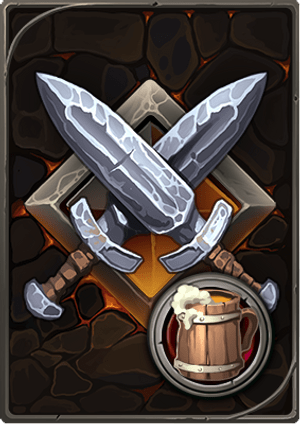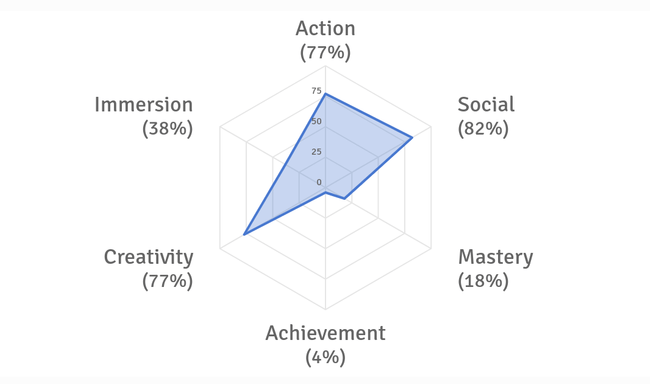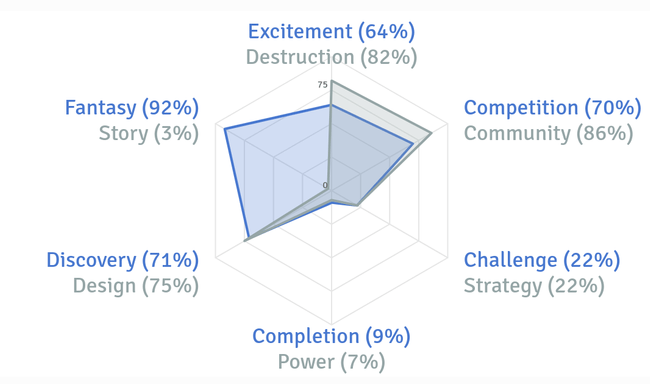My Gamer Motivation Profile: Skirmisher/Bard
As a casual yet avid gamer, I jumped on a link shared by Mita Williams in the excellent University of Winds newsletter. An organisation by the name of Quantric Foundry has a Gamer Motivation Profile survey which I’ve taken and also shared with friends with whom I play with on a Sunday evening.

Interestingly, we all came out as slightly different. Here is mine. As ever, I don’t fit neatly into one category but am instead at the intersection of two types:
Your primary (dominant) player type is the Skirmisher, but you also lean towards a secondary player type, the Bard.
Skirmishers want fast-paced team arenas that are accessible and easy to jump into. They are highly spontaneous gamers who dislike games that require thinking and planning.
Bards are team players who want to chat and interact with other players in game worlds that are rich with lore, stories, discovery, and customization. For them, the game is a grand story that emerges from a community of players.
I do like a good radar plot and mine show that I’m pretty uninterested in storylines and ‘completion’. Instead, I’m “action-oriented, spontaneous, relaxed, social, immersed, and creative”. Nice.

In general, I like to be able to jump in and out of games with or without friends (or strangers). I haven’t got the patience or life expectancy to be able to deal with long, drawn-out story modes!

Radar plots can be really useful as diagnostic and matching tools. For example, five years ago I came across Workshape.io. This service uses pre-defined areas to match developers (based on interest) with employers (based on requirements). That’s all well and good if you know what kind of things you like doing but sometimes, as with this example, answering a series of well-constructed questions can give you further insights.

